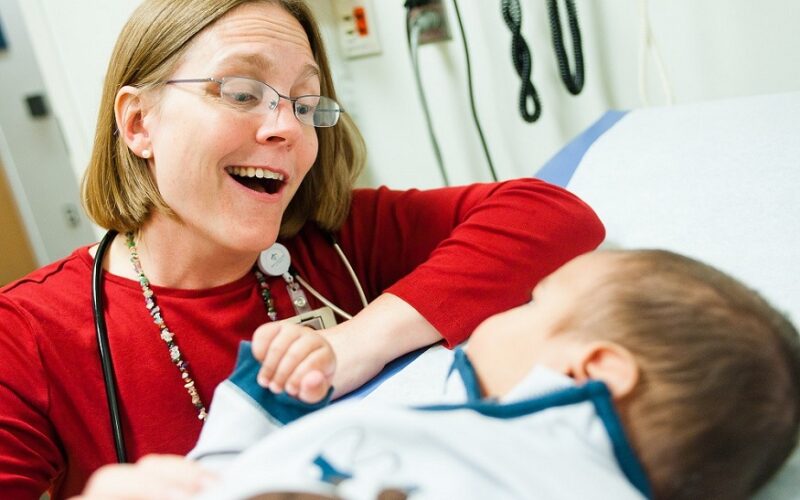Sleep is an essential component of a child’s overall health and well-being. However, many children experience sleep disorders that can disrupt their sleep patterns, leading to various physical, cognitive, and emotional challenges. Paediatric sleep medicine aims to diagnose and treat sleep disorders in children, ensuring they receive the restorative sleep they need for optimal growth and development. In this blog post, we will explore the significance of paediatric sleep medicine and discuss some common sleep disorders affecting children.
The Importance of Healthy Sleep in Children
Sleep plays a crucial role in a child’s growth, development, and overall health. It supports brain function, enhances learning and memory consolidation, and promotes emotional well-being. A child who gets sufficient, high-quality sleep is more likely to have improved attention span, better academic performance, and a stronger immune system. Conversely, insufficient or disrupted sleep can have adverse effects on a child’s physical and mental health, leading to issues such as poor concentration, mood swings, increased risk of accidents, and delayed growth and development.
Common Sleep Disorders in Children
Insomnia: Insomnia involves difficulty falling asleep, staying asleep, or experiencing non-restorative sleep. It can be caused by various factors, including anxiety, irregular sleep schedules, environmental disturbances, and underlying medical conditions. Paediatric sleep specialists can help identify the underlying causes and develop tailored treatment plans to address insomnia in children.
Sleep Apnea: Sleep apnea is a condition characterized by pauses in breathing during sleep. It is often caused by the partial or complete blockage of the airway, leading to disrupted sleep patterns and inadequate oxygen supply. Symptoms may include loud snoring, restless sleep, excessive daytime sleepiness, and behavioural problems. Paediatric sleep medicine specialists can conduct sleep studies to diagnose sleep apnea and recommend appropriate treatments, such as lifestyle modifications, continuous positive airway pressure (CPAP) therapy, or surgical interventions.
Restless Leg Syndrome (RLS): RLS is a neurological disorder characterized by an irresistible urge to move the legs, usually accompanied by uncomfortable sensations. This condition can significantly disrupt a child’s ability to fall asleep and maintain a restful sleep. Paediatric sleep medicine professionals can assess the severity of RLS symptoms and prescribe medications or suggest behavioural strategies to manage the condition effectively.
Parasomnias: Parasomnias encompass a range of sleep disorders, including night terrors, sleepwalking, and bedwetting. These conditions can occur during specific stages of sleep and may cause confusion, fear, and disruption to a child’s sleep. Paediatric sleep medicine specialists can evaluate the underlying causes and provide guidance to parents on creating a safe sleep environment and implementing appropriate interventions to manage parasomnias.
Treatment Approaches and Strategies
Paediatric sleep medicine employs a comprehensive approach to diagnose and manage sleep disorders in children. It involves detailed evaluations of a child’s sleep history, behavioural patterns, and physical health. Sleep studies, including polysomnography and multiple sleep latency tests, may be conducted to gather objective data on a child’s sleep architecture and identify any underlying issues.
The treatment of paediatric sleep disorders often involves a combination of strategies, including:
Sleep Hygiene: Promoting healthy sleep habits and routines, such as maintaining consistent bedtimes, creating a calm sleep environment, and limiting exposure to stimulating activities before bed.
Behavioural Interventions: Implementing techniques like cognitive-behavioural therapy for insomnia (CBT-I) to address underlying psychological factors contributing to sleep disturbances.
Medications: In certain cases, paediatric sleep medicine specialists may prescribe medications to help regulate sleep patterns and manage specific sleep disorders. However, this approach is typically reserved for more severe cases and closely monitored by medical professionals.
Surgical Interventions: In cases where sleep apnea or other physical abnormalities are causing sleep disturbances, surgical interventions may be necessary to correct the underlying issue.
Conclusion
Paediatric sleep medicine plays a vital role in diagnosing and treating sleep disorders in children. By addressing these disorders early on, healthcare professionals can help children achieve healthy sleep patterns, which are crucial for their overall well-being, development, and quality of life. If you suspect that your child may be experiencing a sleep disorder, it is important to consult with a paediatric sleep medicine specialist who can provide the necessary evaluation, diagnosis, and treatment options to ensure your child’s sleep health. Remember, a well-rested child is a happier and healthier child.

